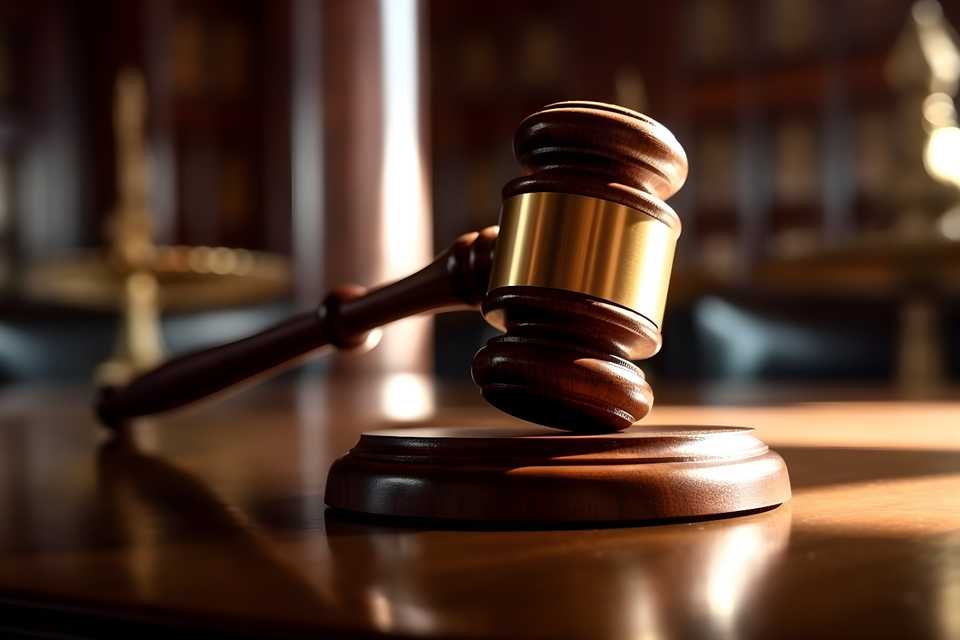Cyberbullying is not just wrong, it is also illegal. It can have serious legal consequences if you harass someone online or bully someone.
If you have experienced harassment on social media or been bullied online, you are not alone. The law offers protection to victims by punishing offenders with imprisonment, fines, or compensation to the victims.

Cyberbullying is punishable under Civil Law and Criminal Law, depending on the circumstances.
Whether you are the victim or you are being charged with online defamation or cyberbullying, hiring a lawyer to represent you is your next step.
Learn more about how to legally deal with online defamation and cyberbullying. Compare lawyers from JuriGo who can give your expert legal advice and assist you in your case.
Fill out the short online form on this page, free of charge and with no obligation.
Online Defamation in the Digital Age
Online defamation or cyber-libel can be anyone’s nightmare . If you are a professional, it can cause damage to your reputation, career, and business or personal relationships.
It can happen on any online platform, social networking site, or blog, or even review sites.

For there to be defamation, the plaintiff must show the following:
- The “defamatory” content refers to the plaintiff;
- The content was published to a third party; and
- The content would make an ordinary person think less of the plaintiff.
The first criteria can be easily satisfied as in the case of a review about a professional that has been posted on his profile or account.
Publication, which is the second criteria, needs evidence that an individual (besides the plaintiff or his lawyer) has read the content under issue. In some situations, proof that the content was published can be evidence of a third party having read the defamatory content .
The third criteria examines the language of the content which must have a negative effect on the plaintiff’s reputation. If so, the remarks are assumed false unless the defendant can prove otherwise. An example would be remarks about a professional’s abilities by a non-client.
How can online defamation charges be defended?

Whether you are the accuser or the accused, it is important to know how charges for online defamation can be defended.
Truthful statements– Defamation charges cannot succeed if the content is true.
Fair Comments– An opinion based on facts, not malicious and for the public interest don’t fall under defamation.
Qualified Privilege– Honest communication made without malice in a specific scenario such as employment reference are not defamatory. Express malice is when comments are made with:
- Spite or ill will
- With ulterior motives that conflict with the occasion
- Dishonest statements with reckless disregard for the truth.
Responsible Communication– A plaintiff’s claim will not succeed if the statements made to the media were diligently verified by media and were on a matter of public interest.
What are the legal remedies for online defamation?
If a plaintiff is successful in proving his case, the Court may order the defendant to give monetary compensation. Some level of damages is assumed if the plaintiff and his counsel proves the content is defamatory. To qualify for compensation, the plaintiff is not obliged to prove damage or injury to his reputation was sustained.
Such compensation is generally awarded to repair or vindicate a plaintiff’s reputation and to offer consolation for the distress suffered. He can also be entitled to additional compensation for punitive damages or aggravated damages.
In certain cases, the plaintiff may also get an injunction or court order to prevent the defendant from publishing future defamatory content.
What to do if you are a victim of cyber-libel?
There are steps you can take if you are a victim of cyber-libel and considering legal action. You must find a criminal or cyber-libel lawyer to help you with your legal options.
Gather evidence. Keep any evidence of defamatory posts via screenshots or printed copies. You can also preserve search results that displayed the content, comments, etc. Take note of the date and time the posts were published and if there were attempts to flag or remove them.
Mitigate the harm done. Upon discovering the defamatory posts, you have an obligation to try to mitigate the harm. You can get in touch with the platform to request the removal of the statements or delete the posts.
Hire a lawyer. If you know who is behind the defamatory posts, ask a lawyer to send a cease and desist letter as your first response. If you don’t know the attacker, you can request for the identity of the poster or IP address with a Norwich Order. This type of order is a court order that compels another party to preserve and provide information to you before you file a claim.
File a claim within the time limit. You will also need to act fast. For traditional media (newspapers, magazines, etc.) the notice of libel must be served within 6 weeks of the publication .
For most online defamation cases, the time limit is 2 years after the discovery of the defamatory statements.
Explore your legal options
You don’t need to suffer due to online defamation or cyberbullying.
Explore your legal options by contacting a lawyer from the JuriGo network. Fill out the free online form on this page and get connected quickly with an experienced lawyer in your area.
Cyberbullying in Ontario
Cyberbullying has the potential of creating what a target feels is an unsafe environment. A student may not want to go to school for fear of facing violence or being harassed. An employee may feel compelled to quit her job as a result of cyberbullying.
Schools and places of work are required to create a safe environment for all. The Safe Schools Act in Ontario was amended to specifically address online behavior. A student can be expelled or suspended for cyberbullying in or outside the school.

If an office does not do all that it can to make the environment safe, the target can take legal action against it. Criminal Law identifies which actions are crimes with several approaches to cyberbullying.
- Harassment
Harassment is a crime. When something that a person says makes another feel afraid for her safety, it is harassment. It does not matter if the harasser did not really mean to scare someone, he can still be charged with harassment . Criminal harassment carries a maximum penalty of 10 years’ imprisonment.
- Defamatory Libel
A libelous statement directed against a person in authority could cause serious harm to his reputation. This is treated as a crime and has a maximum penalty of 5 years’ imprisonment.
- Publication of intimate images without permission.
Publishing intimate images without the consent of the person involved became an offence under the Criminal Code in 2015. It includes the intentional spreading of an image wherein the person is nude, has genital organs, anal region, or breasts exposed, or is engaged in sexual activity.
The Canadian Charter of Rights and Freedoms, Section 2, covers freedom of expression. This right is subject to “reasonable limits under the law” and in the case of cyberbullying, freedom of expression is weighed against the “ right to life, liberty, and security of the person” of Section 7.
Freedom of expression is not generally an acceptable defence in criminal or civil bullying cases.
| The Province of Ontario defines cyberbullying as: (1.2) Without limiting the generality of the definition of “bullying” in subsection (1), bullying includes bullying, known as cyber-bullying, that is done through any form of electronic means using any technique, including, (a) the creation of a web page or a blog in which the creator assumes the identity of another person; (b) the impersonation of another person as the author of posted content or messages; and (c) communicating material to more than one person or posting material on an electronic medium that may be accessed by one or more persons. |
|---|
Aside from facing up to 5 years’ imprisonment, an individual convicted of a cyberbullying offence can also face:
- Confiscation of their cell phone, computer, iPad, or other device used to share the image; and
- Reimbursement of the victim for the cost of removing the image from the internet and any other source.
The amended Act further mandates schools to provide instruction regarding bullying prevention to every student during the school year.
They must also have remedial programs to help victims of bullying and professional development programs to educate teachers about the strategies for handling cases of bullying. Each school board is also mandated to create a plan for preventing bullying in schools.
Civil Tort Law: Public disclosure of embarrassing private facts
A civil law tort known as “public disclosure of embarrassing private facts” was introduced in 2016 and is handled by the Ontario Superior Court of Justice.

This tort is defined as one who publishes a matter relating to the private life of another and is considered an invasion of privacy if the publicized matter is offensive and not a legitimate concern of the general public.
This tort stemmed from a case wherein a woman sued a former partner for sharing a sexually explicit video she had given him without her consent.
Aside from criminal harassment, the Criminal Code also considers the following as associated with cyberbullying, depending on the actions of the accused.
- Making threats
- Intimidation
- The unauthorized use of a computer
- Mischief in relation to data
- Defamatory libel
- Extortion
- Identity fraud
- False messages, indecent, or harassing telephone calls
- Counselling suicide
- Inciting hatred
Compare Lawyers in Ontario for a Cyberbullying case
Anyone accused of cyberbullying has the right to a fair trial where guilt must be established beyond a reasonable doubt. If you are charged with a criminal offence, you need an experienced and competent criminal lawyer to get your charges dismissed or the penalties reduced.
On the other hand, if you are a victim of cyberbullying, you want a competent lawyer who will zealously fight for your rights.

A good lawyer can help you get justice for your suffering, ensure the attacks against you cease, and help you with compensation for your losses.
Fill out the short online form on this page to find the best lawyer to represent you in your case.
JuriGo has experienced lawyers across Ontario that can help you get justice for your case.